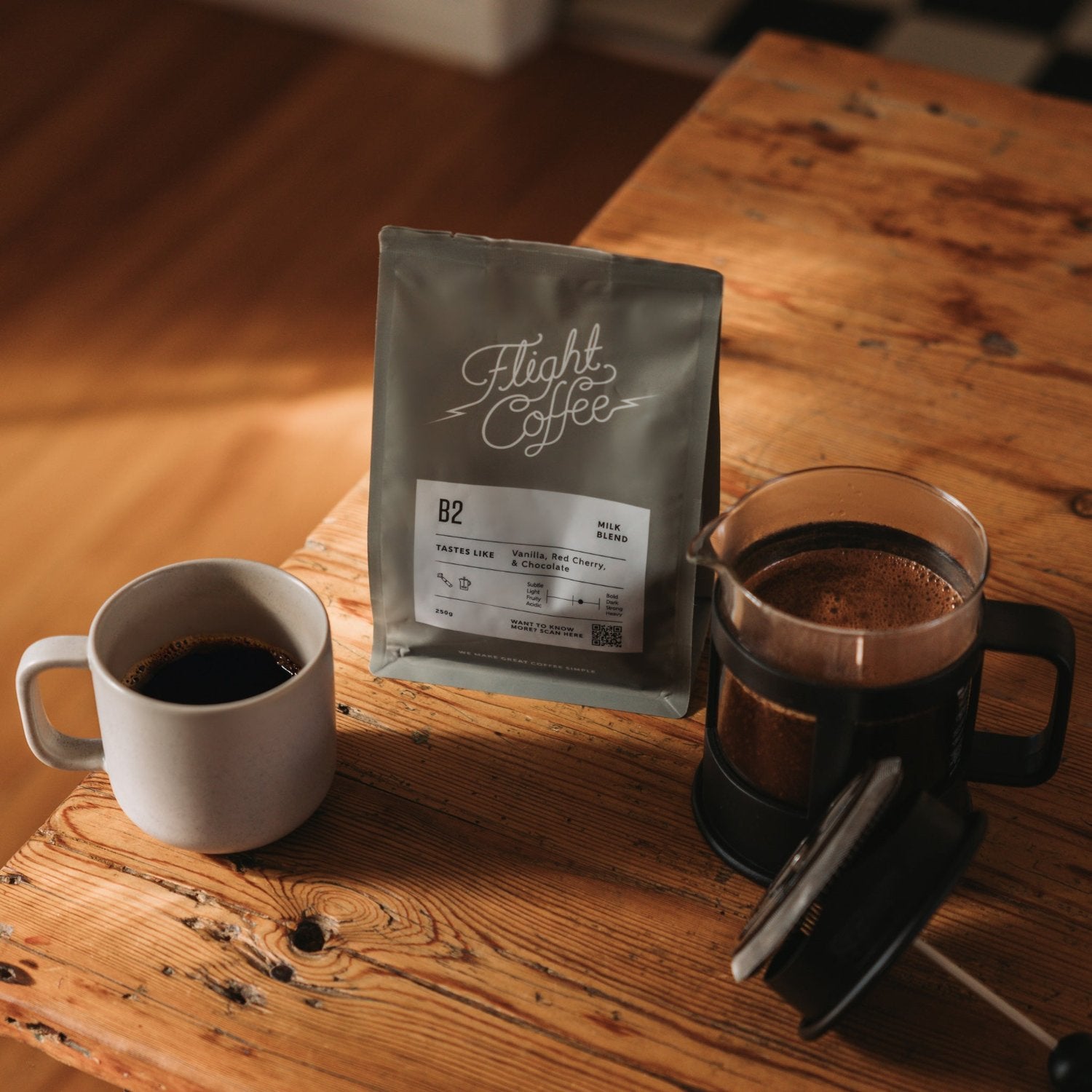We began by working and learning in as many coffee-producing countries as possible, with the goal of improving Flight Coffee’s supply chain. It is widely acknowledged that there is a systematic problem in traditional coffee value chains that sees coffee producers receive prices that are very volatile and low. Initially, we aimed to ensure our own demand generated through Flight Coffee resulted in a positive impact. This process soon evolved into a global coffee growing, processing, exporting, importing and consulting social enterprise, called Raw Material.
Our goals are to connect producers to roasters in a way that improves price stability at the farm level, and to distribute value more equitably along the value chain. Currently we operate in Colombia, Rwanda, Burundi, and Myanmar, with two further pilot programs underway in other countries where a small change will yield a large impact.

COLOMBIA
In Colombia, we improve margins for farmers who seek access to the specialty market, through community projects and a stable price payment system. In 2016, we began our community wet mill project, El Fénix, which provides neighbouring farmers greater control over their coffee quality, and much needed control of their income. In 2017, we saw that a version of model could benefit larger communities of producers when we met with representatives of hundreds of farming families in Pitalito, Huila, who could no longer dry their coffee due to climate change. The solution took form in Red Associations (red means network in Spanish), which aims to solve farmers’ self-identified core challenges: a lack of key infrastructure, and lack of market access.

EL FÉNIX
Through our El Fénix community wet mill and farm, we aim to remove obstacles to quality production, connection to market, and economic sustainability, using a stable price system based on quality. This is in stark contrast to returns using the commodity market price, which has been known to drop below the cost of production.
Processing coffee is complex and has a significant effect on the final product. This is often an obstacle to farmers who are seeking access to the specialty market. Once construction is complete, the El Fénix wet mill will be able to sort, process, and dry coffee cherries on the farmer’s behalf (controlling elements of the resultant flavour) as well as provide agronomy training; eliminating two key hurdles in accessing the specialty market.
For updates on the advancement of the building of the project head over to elfenix.coffee.

RED ASSOCIATIONS
In May 2017, we met with coffee producer groups in Pitalito, Huila, to hear about their challenges. These groups were representative of hundreds of families, who have the potential to produce well over 1 million kg of coffee (parchment) each year. Despite good production levels, income from coffee for these families had dropped to unsustainable levels in the past few years. They described a lack of key infrastructure, and of price certainty to make investment in quality a sensible move.
Through our joint project, Red Associations, coffee producing families have access to their own QC cupping labs, training rooms, buying points and most importantly, to new drying facilities to solve the most pressing climate change issue. Now Red Associations are being built in other regions of Colombia, and roasters from all around the world have joined the association as members, bringing diverse knowledge from other markets to the groups.

RWANDA
Our work in Rwanda takes place through working closing with our partner producers, Muraho Trading Company. This partnership helps affiliate cooperatives increase their quality of production, fetch a higher price for their coffee and introduce producers to new markets. Two coffee washing stations, Rugali and Kilimbi, were built in February last year by our export partners, and are located in the Nyamasheke region in South West Rwanda. With them, we are developing a fixed price payment model specific to the value chain in Rwanda. This will be a continuous work in progress in the coming years as we gain a greater understanding of the particular challenges Rwandan coffee producers face.
Our current payment rate is 40% higher than that set by the Rwandan National Agricultural Export Board (NAEB). Aside from developing the stable price model, we work with our partners to process honey and natural coffees and have the first official permission from NAEB to export the coffee as such.

MYANMAR
Since 2015, we’ve been a small, dedicated part of the work carried out by Winrock, funded by USAID, and supported by the Coffee Quality Institute (CQI), to develop specialty coffee value chains and help develop coffees in Myanmar that can be brought to international markets. The group’s work has introduced new production practices to smallholder farmers - many of whom are women in remote communities - who have quickly taken up the opportunity to improve the quality of their beans, and get access to a new market for their products. For further information on Myanmar and the development of its coffee supply chain, travel through this link.
TO FIND OUT MORE, GET IN TOUCH
Should you be interested in about the context in which our work finds itself, sustainable value chains, smatterings of word play and general knowledge tidbits, head over to our Instagram page. If you would like to know more about our projects, send an email to matt@rawmaterial.coffee, or blink182@rawmaterial.coffee for all the small things.















